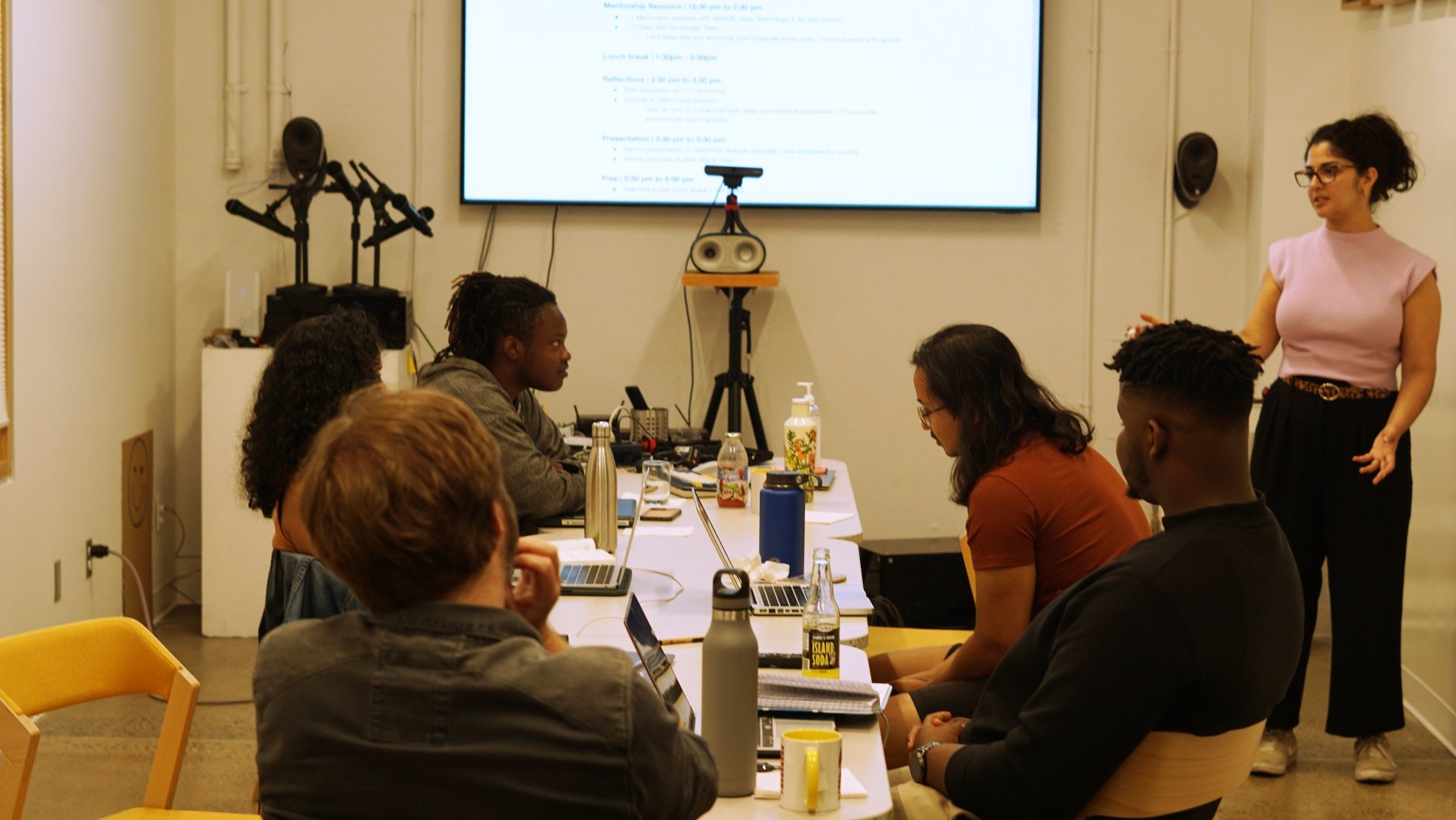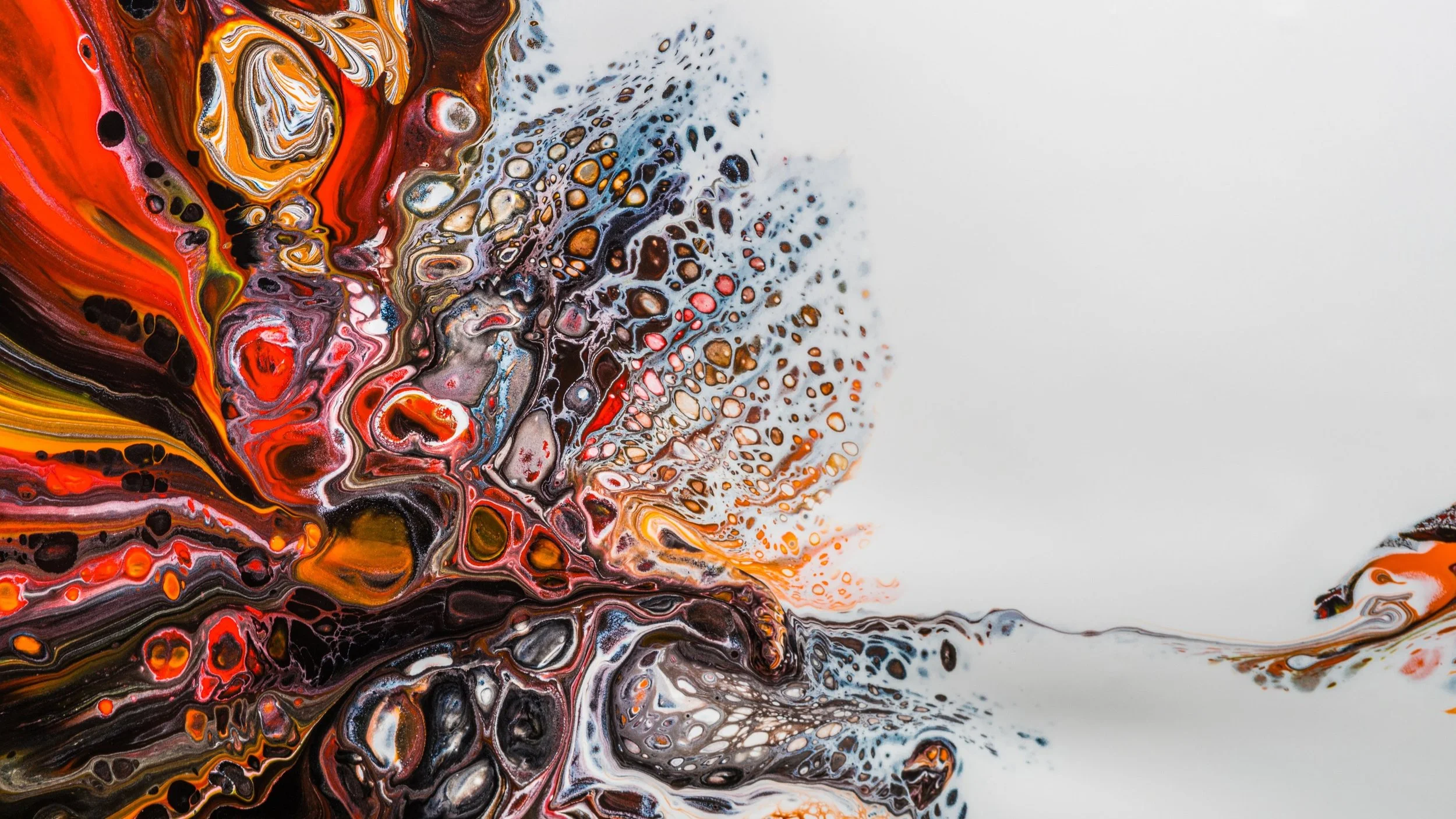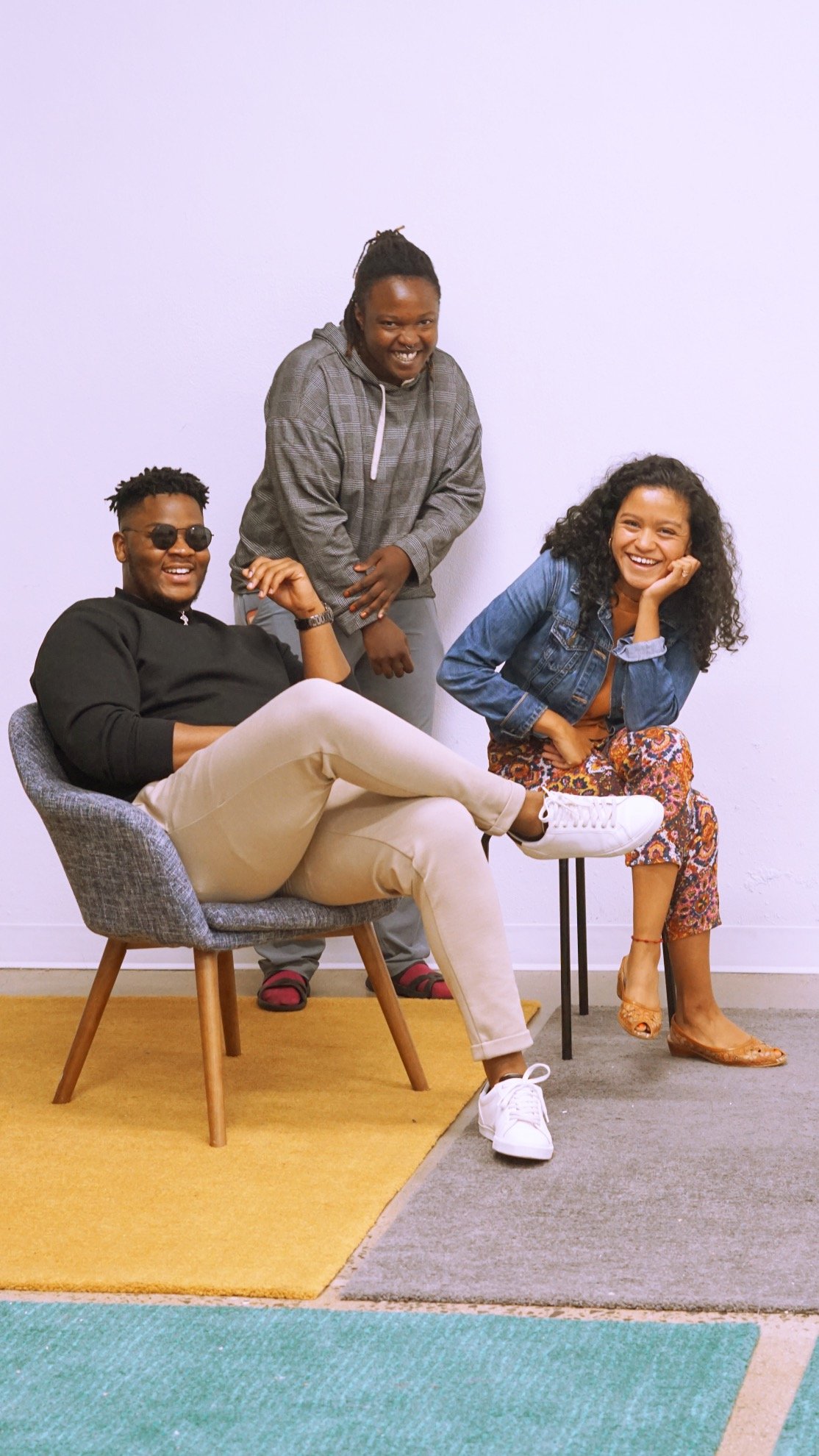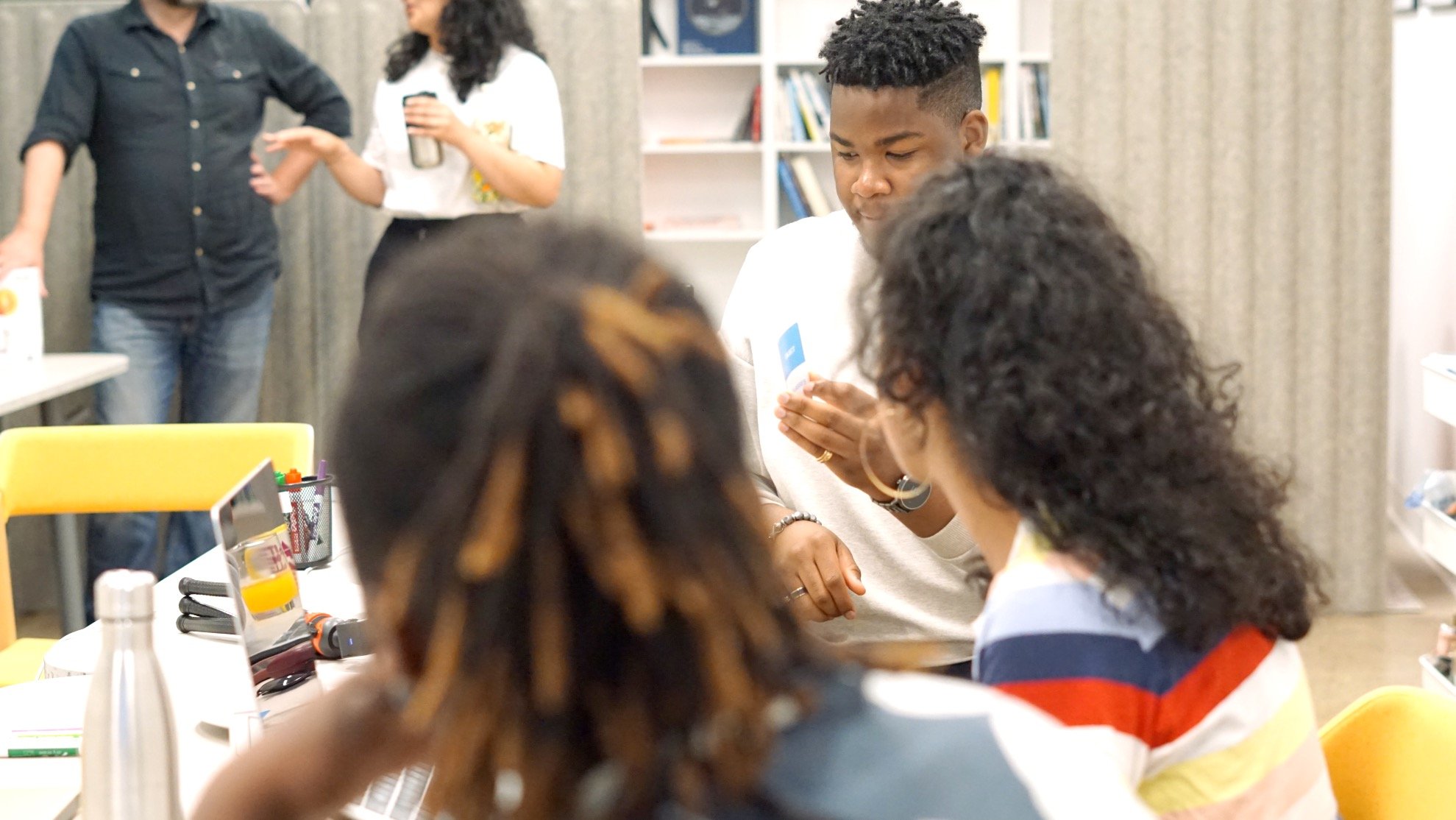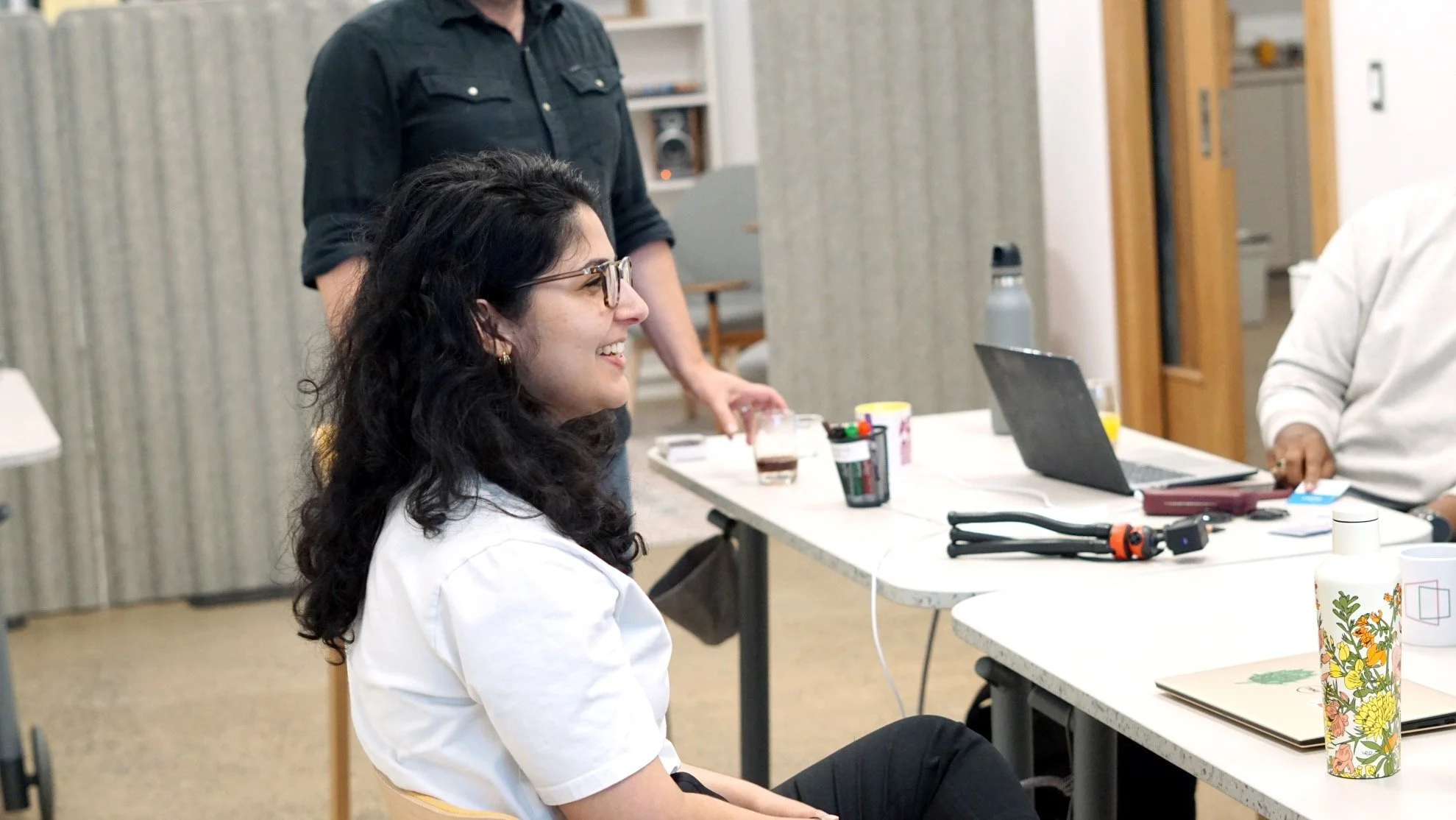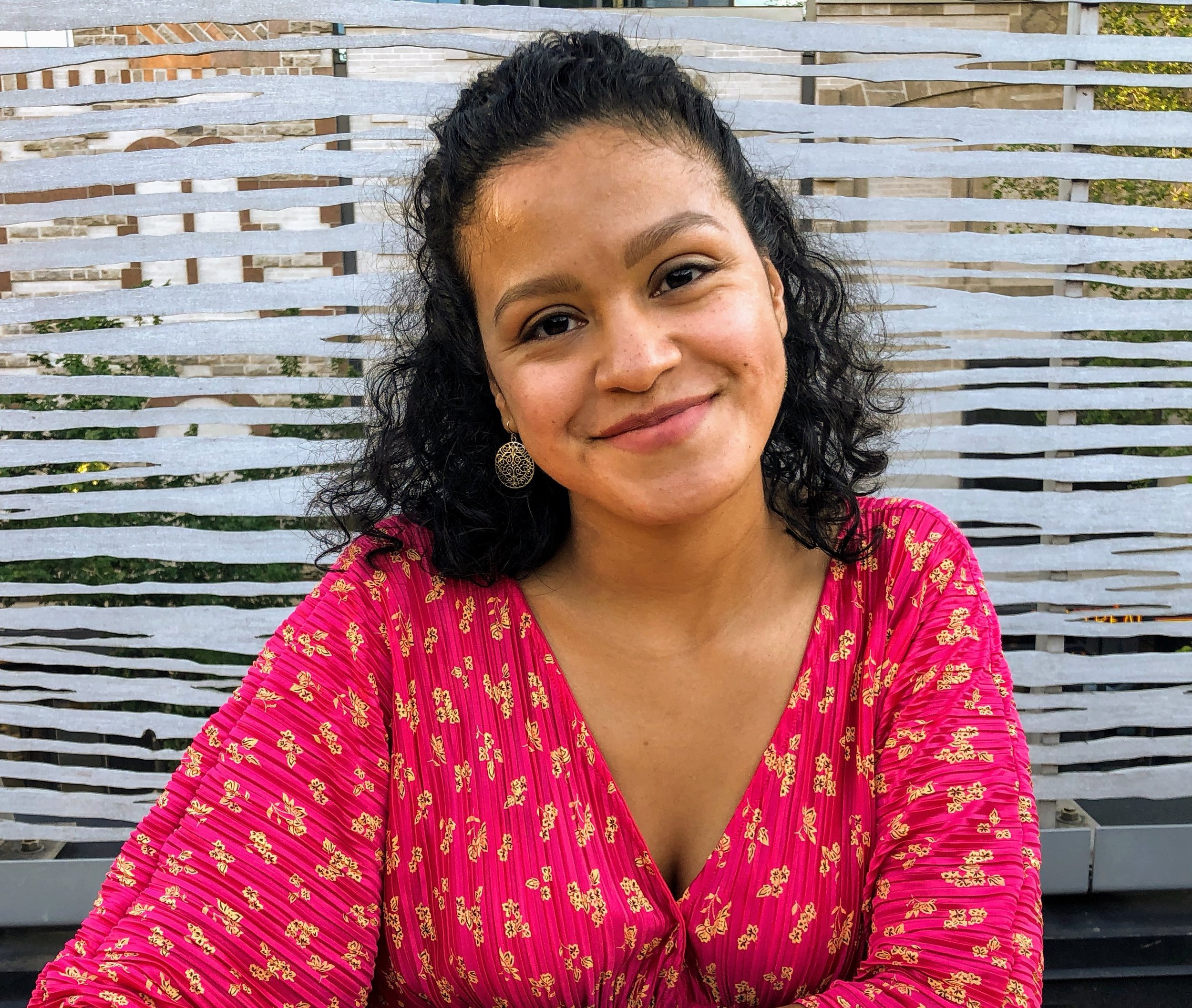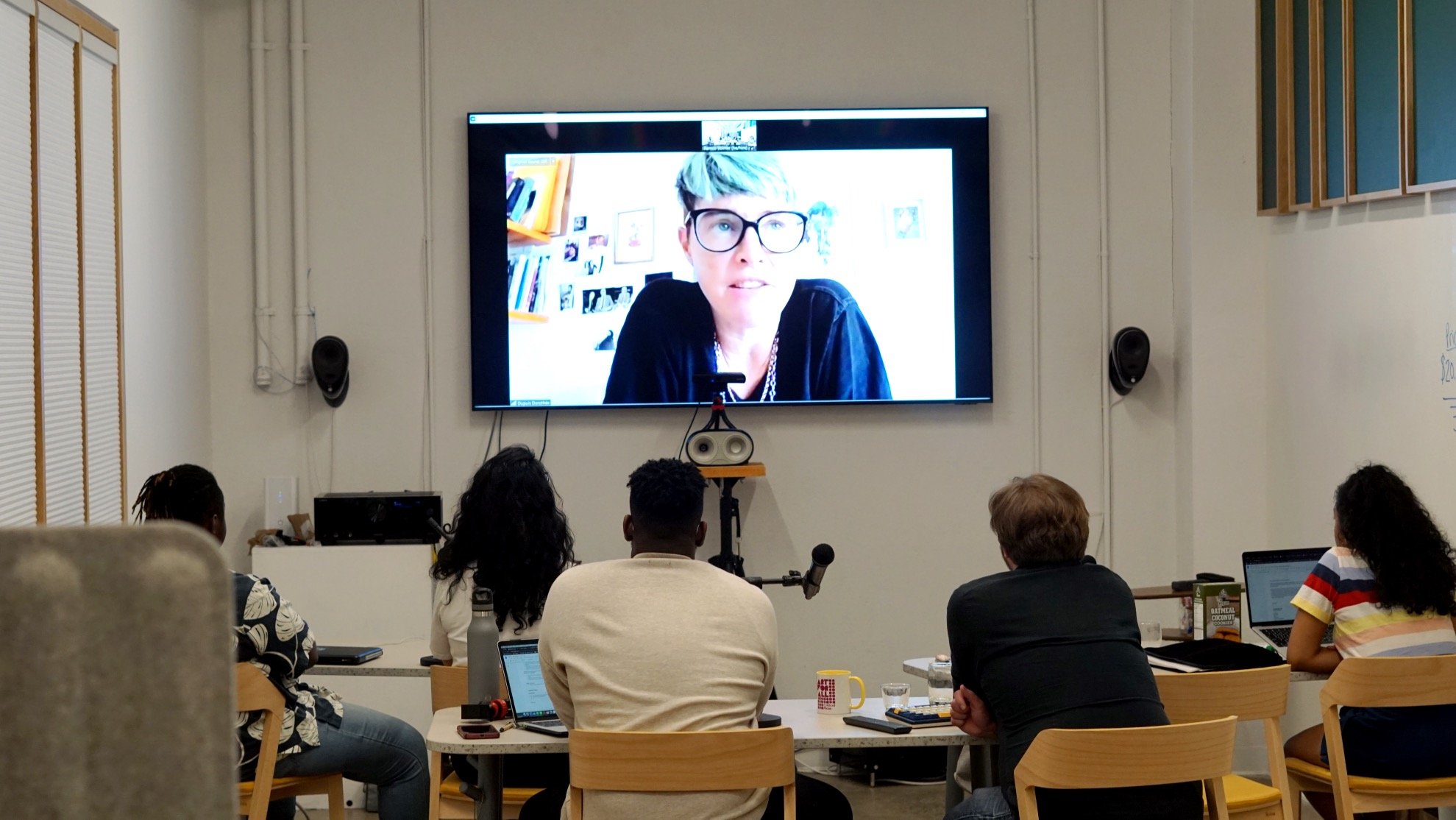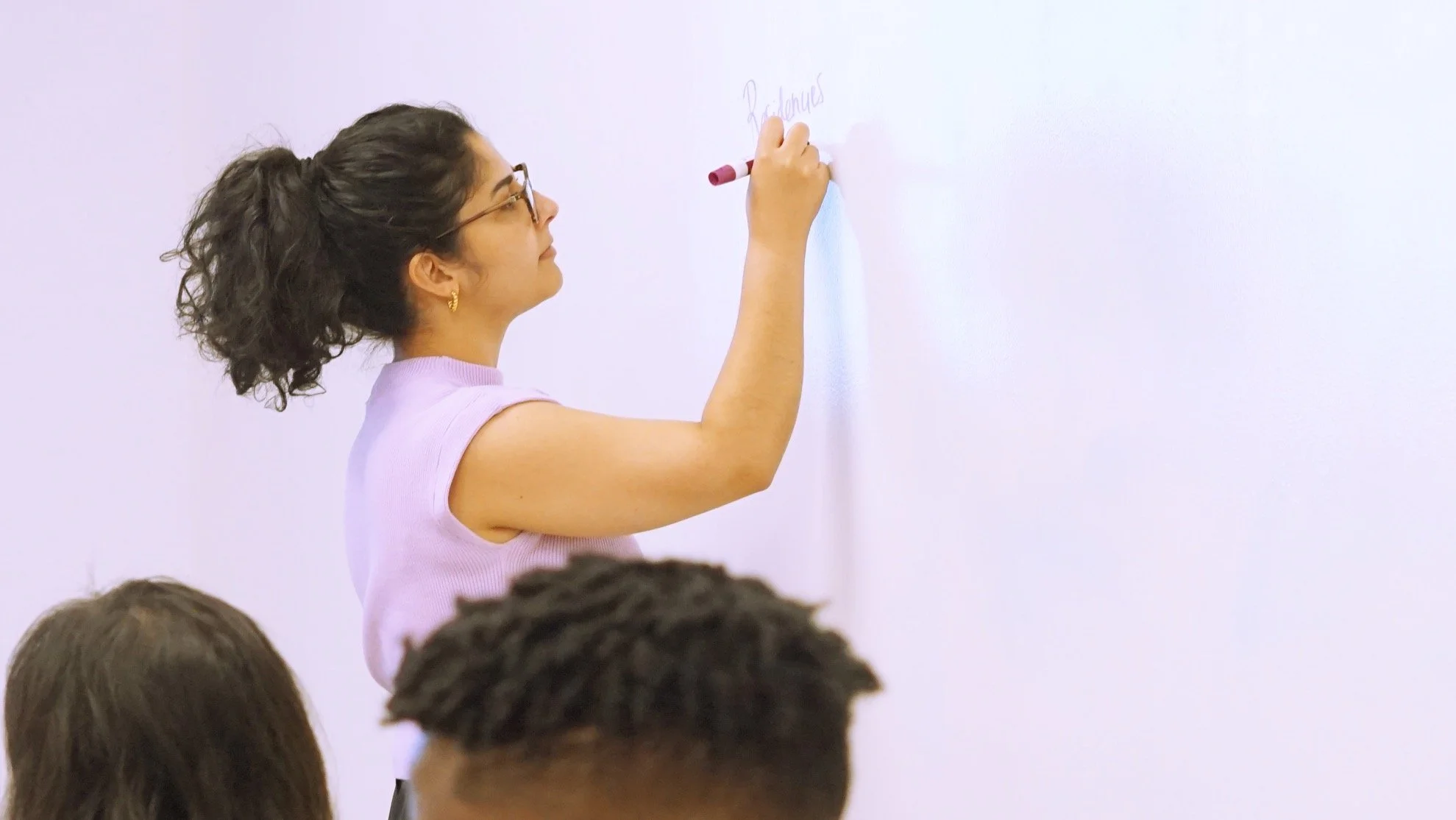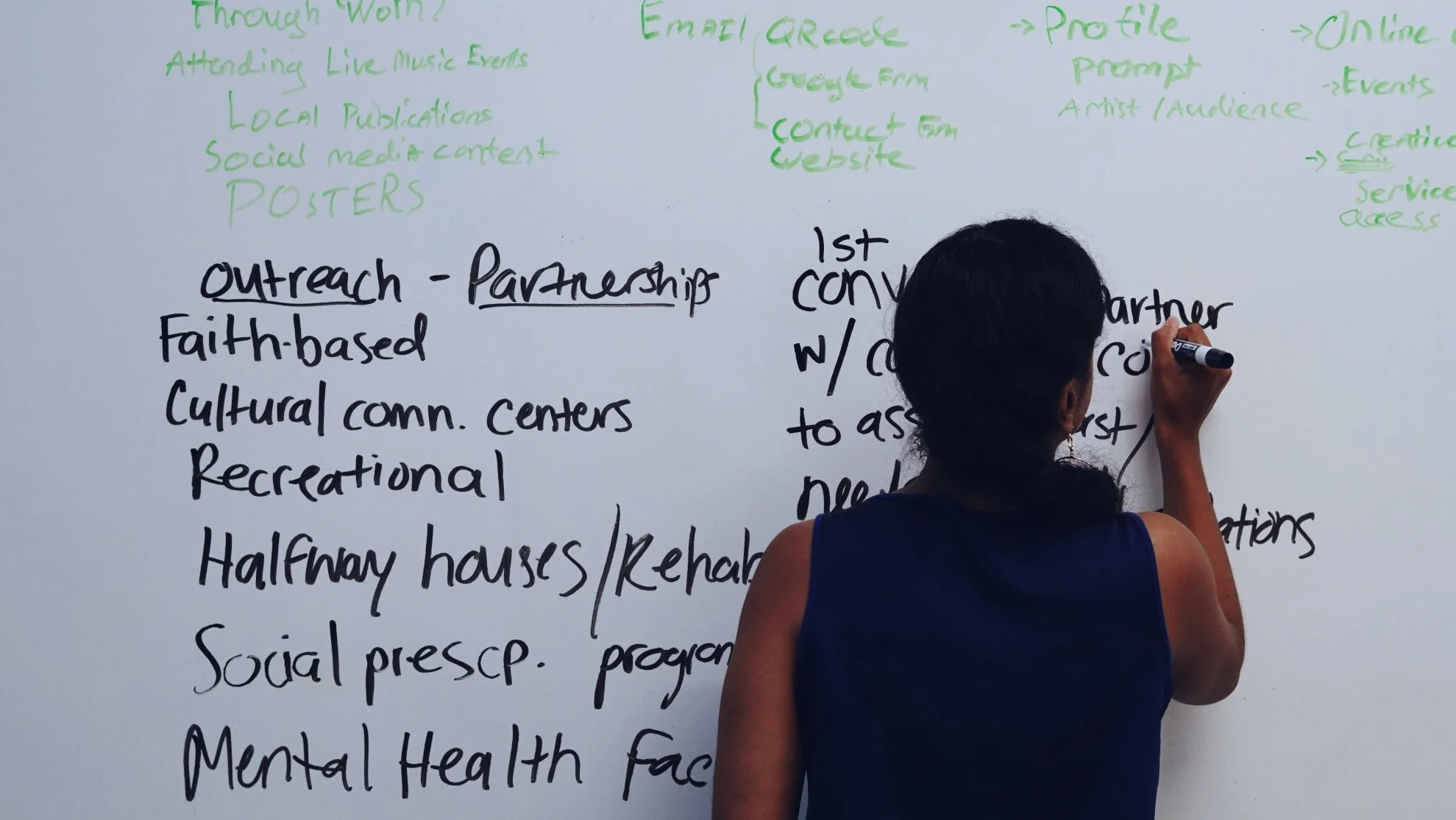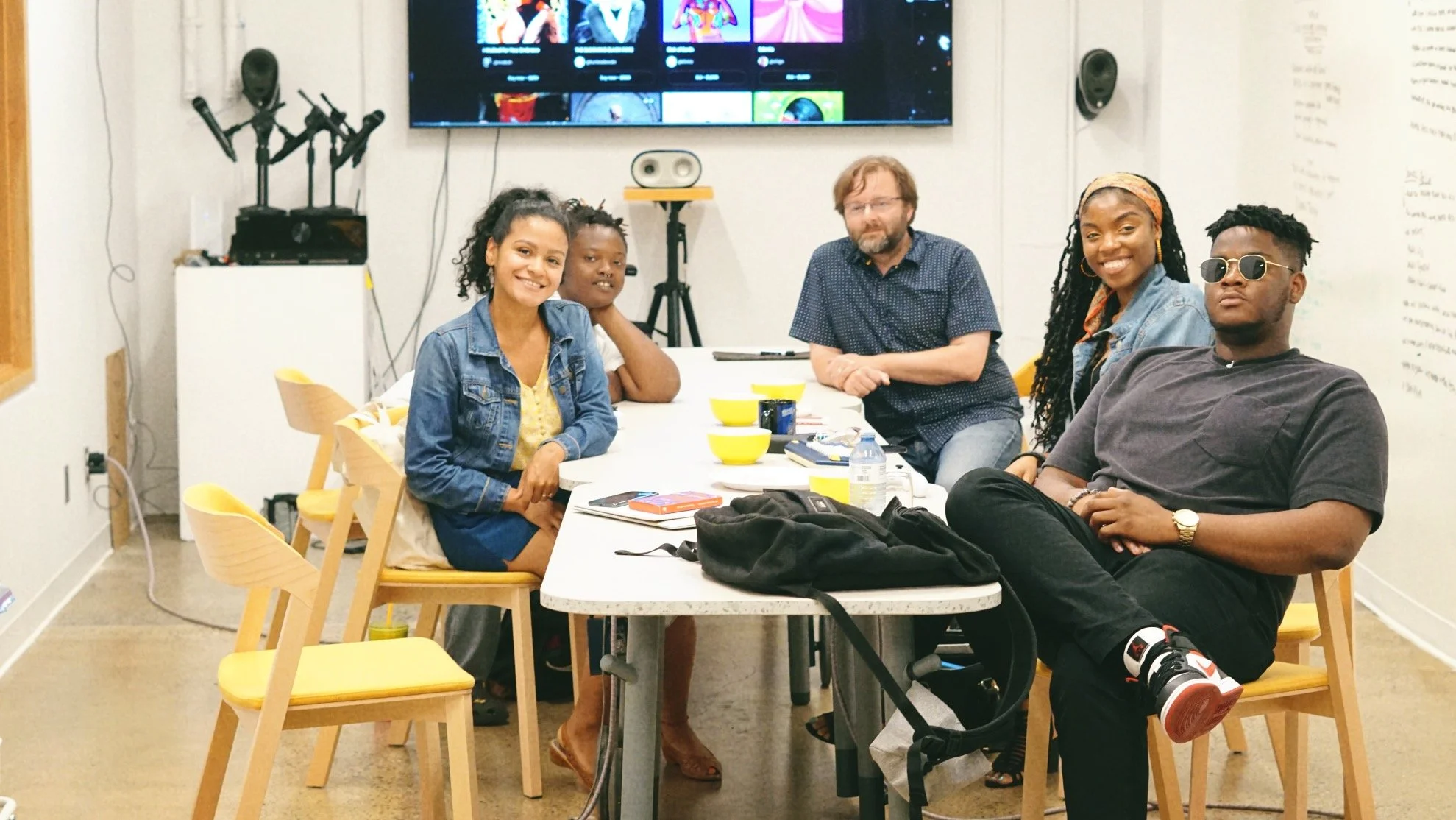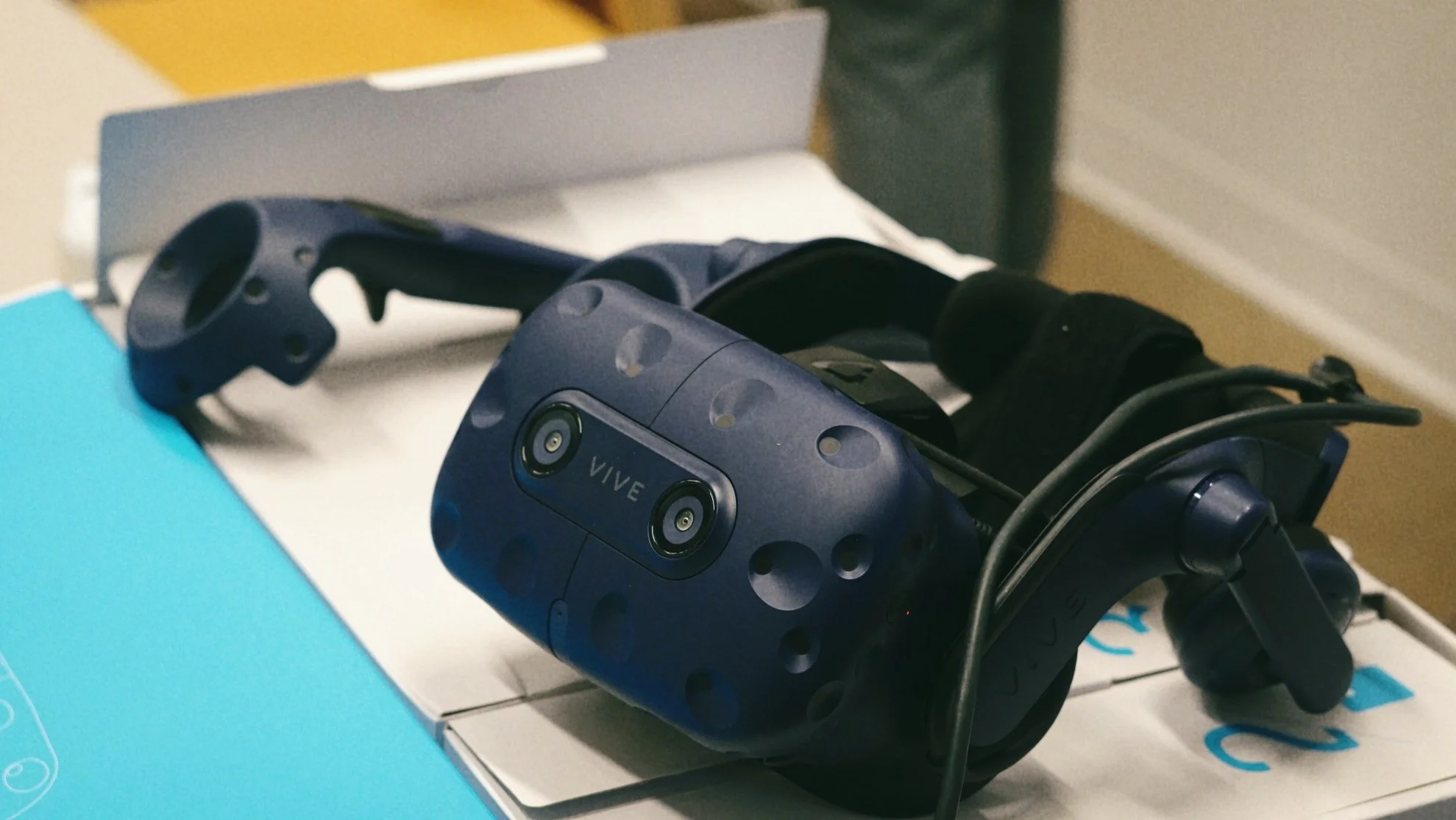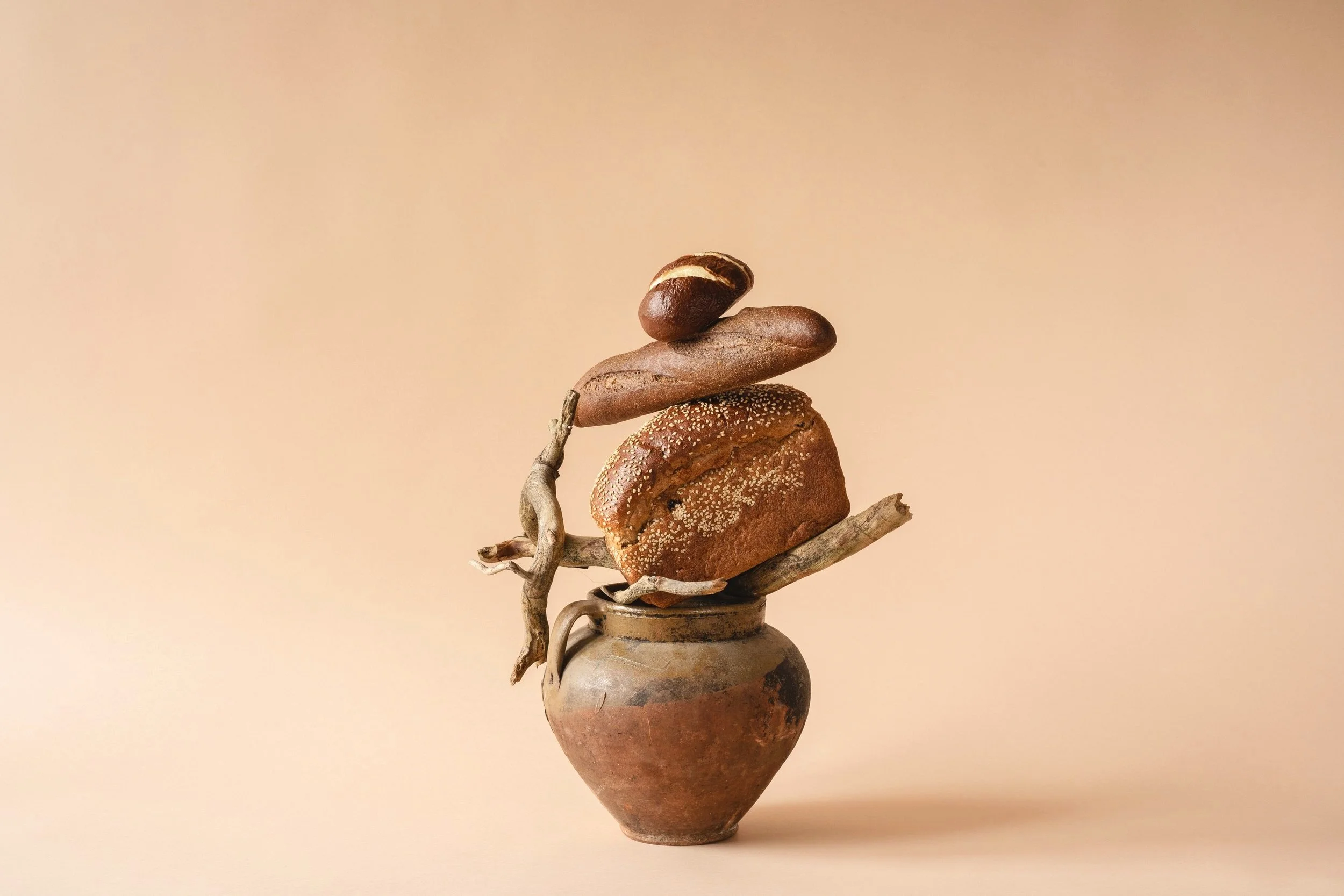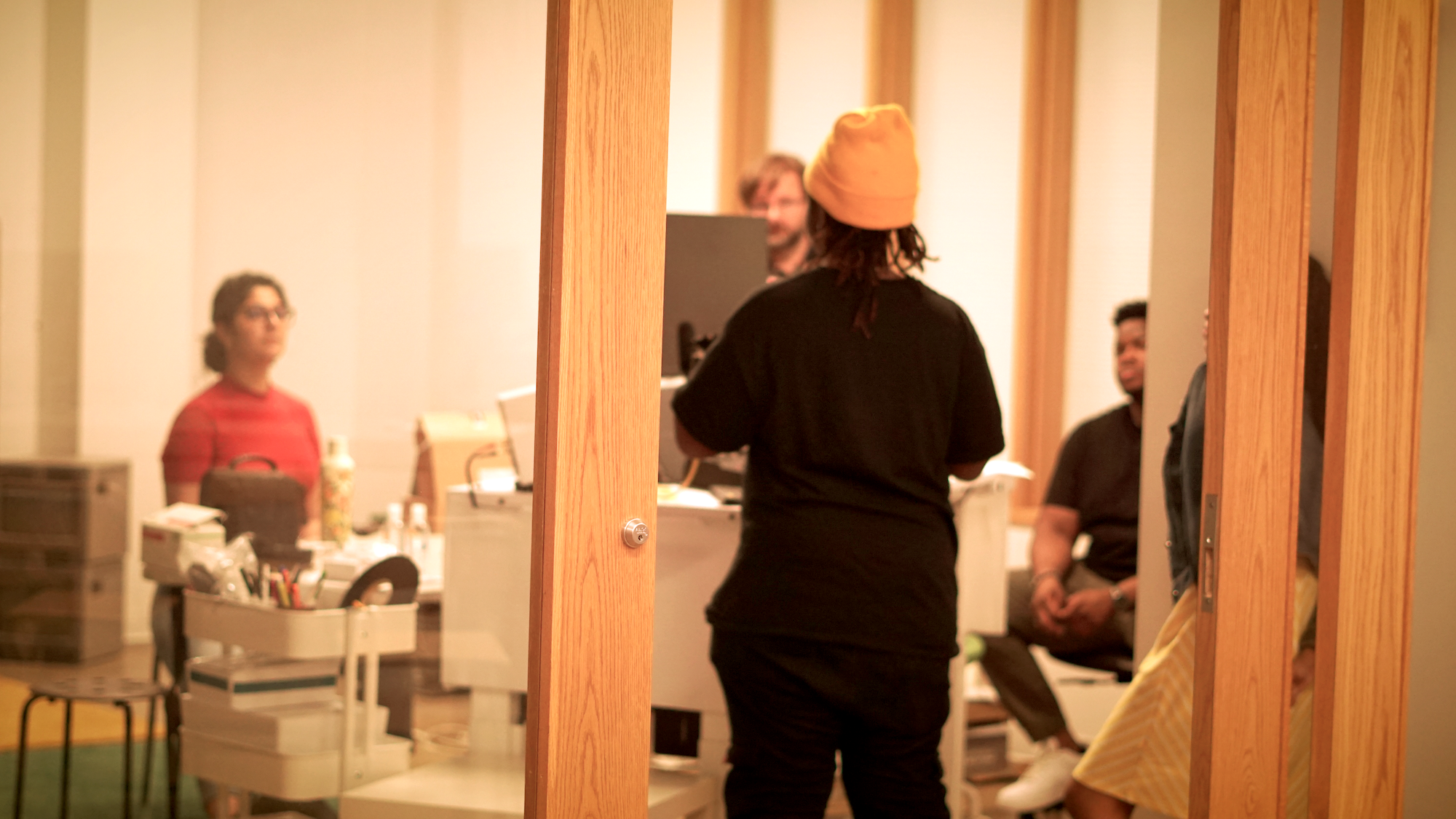Our Residency Program is all about shifting mindsets. That, inevitably, includes money, resources and sustainability – especially for historically-marginalized artists, who often come from precarious socio-economic backgrounds. Our intention with this session was to help them understand how, on a very practical level, they can keep their initiatives afloat.
We didn’t take the importance of this subject lightly. Our residents are artists who are creating in a system that wasn’t built for them. To go beyond survival to build an initiative that is sustainable throughout – and whose impact, in turn, can meaningfully support their communities long-term – we couldn’t ignore their financing.
Instead of pushing our residents to adopt the status quo, we examined what it is that gives primary funding institutions economic power, and how we can use this knowledge to develop alternate models truly built to serve historically marginalized communities.
This conversation was among our most interesting. We explored alternative funding models, such as decentralized money sharing among organizations and collectives, vs. top-down hierarchies that only offer a fraction of their funding to the creatives they support – thus imposing a sense of ownership on participants that incentivizes them to seek out funding in a more meaningful way.
To help our residents adopt this exploratory mindset, we connected them with their mentors: professional artists from around the world whose initiatives model similar goals to those of our residents. We are pleased to share that, at the time of this report’s publication, each of these leaders continued their relationships supporting our residents beyond our program.
Our mentors were:
SMADE (Adesegun Adeosun Jr), Co-Founder of Afronation, Founder of SMADE Group
SMADE’S work founding and leading the operations of SMADE Entertainment and Afronation created a powerful platform for artists from the African diaspora to share their work, celebrate their roots, and connect with their communities – giving musical talent from the continent more chances to headline large scale events.
Cary McQueen, Founder and Executive Director of Art With Impact
Cary’s focus on art as a tool to empower people to address their mental health has made Art With Impact an impactful arts-based mental health resource serving thousands of students each year at colleges and universities throughout the U.S. and Canada and housing the most diverse library of short films about mental health issues in the world.
Cat Lamoureux, composer, musician, and member of susy.technology
Cat’s work spans the converging spheres of music, digital art, performance, immersive sound, video and installation, allowing technology to serve as a tool for complex and profound communication. Through these interdisciplinary tools, she explores how immersive and spatial sound connect to neurodiversity, somatics, trauma and pedagogy.
